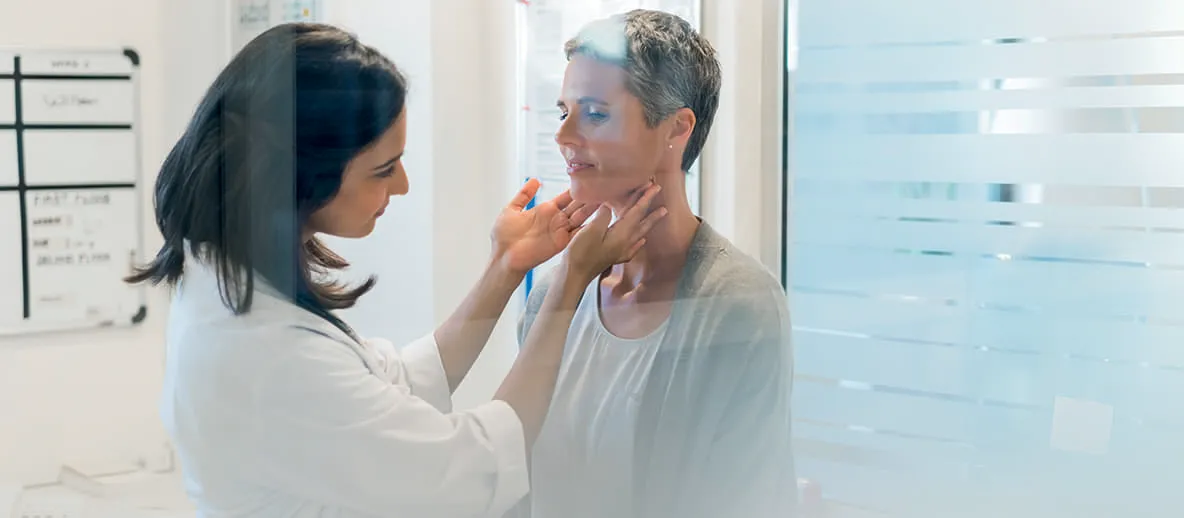- Für Dienstleister
- Für Makler
Einzelpersonen und Familien
Wen wir abdecken
- Im Ausland lebende Personen
- Familien
- Studenten
- Arbeiten im Ausland
- Rentner
- Über 60 Jahre
Top-Ziele, die wir abdecken
Krankenversicherung für Expats
- Wissenswertes zur Gesundheit von Expats im Hub
- Übersicht für Rentner zur internationalen Krankenversicherung
- Eine Übersicht zur internationalen Krankenversicherung für die Arbeit im Ausland
- Krankenversicherung für Expats im Detail
- Übersicht für Studenten zur internationalen Krankenversicherung
- Umzug ins Ausland während der Schwangerschaft
Krankenversicherung wählen
- Reiseversicherung oder internationale Krankenversicherung
- Krankenversicherung wählen
Länderratgeber
- Länderratgeber
FAQ
- Häufig gestellte Fragen
Arbeitgeber
Global Health Benefits Europa
- Krankenversicherungen für Arbeitgeber
- Cigna Inspire Versicherung
2 bis 149 Mitarbeiter
- Internationale Krankenversicherungen
Große Unternehmen
- Krankenversicherungen für große Unternehmen
IGO/NGO und Behörden
Themen
Einzelpersonen und Familien
-
Versicherungsschutzarten
-
Wo wir abdecken
- Argentinien
- Australien
- Österreich
- Brasilien
- Kanada
- Chile
- China
- Costa Rica
- Ägypten
- Frankreich
- Deutschland
- Griechenland
- Indien
- Indonesien
- Irland
- Italien
- Japan
- Kuwait
- Mexiko
- Niederlande
- Philippinen
- Portugal
- Singapur
- Südafrika
- Spanien
- Schweden
- Schweiz
- Thailand
- Türkei
- VAE
- Vereinigtes Königreich
- USA
- Vietnam
-
Ressourcen
- Wissenswertes zur Gesundheit von Expats im Hub
- Übersicht für Rentner zur internationalen Krankenversicherung
- Eine Übersicht zur internationalen Krankenversicherung für die Arbeit im Ausland
- Krankenversicherung für Expats im Detail
- Übersicht für Studenten zur internationalen Krankenversicherung
- Umzug ins Ausland während der Schwangerschaft
- Reiseversicherung oder internationale Krankenversicherung
- Krankenversicherung wählen
- Länderratgeber
- Häufig gestellte Fragen
-
Für Mitglieder
Arbeitgeber
-
Unsere Versicherungen
-
Für Mitglieder
IGO/NGO und Behörden
- Übersicht
-
Unsere Versicherungen
-
Für Mitglieder
Blog zum Thema Gesundheit
Für Makler
Understanding healthcare in Switzerland
Understanding healthcare in Switzerland
Are you thinking about moving abroad and have settled on Switzerland?
Erwartungsgemäß funktioniert das schweizerische Gesundheitsversorgungssystem so präzise wie ein Uhrwerk und ist in ganz Europa für seine hochwertigen medizinischen Dienstleistungen bekannt. Die Gesundheitsversorgung genießt grundsätzlich eine hohe Priorität in der politischen Tagesordnung und das Land verwendet rund 10 % seines BIP für den Gesundheitsbereich, sodass die Schweiz in dieser Hinsicht innerhalb der OECD-Länder (Organisation für wirtschaftliche Zusammenarbeit und Entwicklung) einen Spitzenplatz einnimmt.
Diese Investitionen bedeuten, dass das Land eine Vielfalt an medizinischen Einrichtungen mit modernsten Technologien besitzt und eines der niedrigsten Patient-Arzt-Verhältnisse der Welt sowie ein hohes Verhältnis von gut geschultem Pflegepersonal gegenüber der Ärztezahl aufweist. The Swiss enjoy high life expectancy (ranked 4th in the world in 2019*) and infant mortality is one of the lowest in the world.
Of course, all this top quality care comes at a price. Krankenversicherungen sind vorgeschrieben und in der Schweiz lebende Ausländer müssen dieser Verpflichtung innerhalb von drei Monaten nach ihrer Ankunft in der Schweiz nachkommen (es sei denn, sie sind auf Grundlage eines bilateralen Sozialversicherungsabkommens befreit und müssen keine Sozialversicherungsbeiträge in der Schweiz bezahlen, da diese nach wie vor in ihrem Heimatland bezahlt werden). Darüber hinaus müssen Kinder innerhalb von drei Monaten nach ihrer Geburt über eine Versicherung verfügen. Von der Versicherungspflicht befreit sind ausländische Behördenbedienstete, Mitglieder einer Ständigen Vertretung und deren Familienmitglieder.
Swiss healthcare system

The Swiss healthcare system – who is eligible and how do you access it?Switzerland is considered a very healthy place to live. Zur Einreise in das Land sind keine Impfungen erforderlich, obwohl es sich stets empfiehlt, vor Ihrer Ankunft sicherzustellen, dass Sie Ihren Impfschutz gegen Tetanus, Diphtherie und Polio erneuert haben. Eine Impfbescheinigung für ansteckende Krankheiten (einschließlich Gelbfieber) ist vor Ihrer Einreise erforderlich, wenn Sie sich kürzlich in einem infizierten Gebiet aufgehalten haben. Die Schweiz zählt zu den wenigen europäischen Ländern, die für tollwutfrei erklärt wurden.
Nahrungsmittel und Getränke verursachen aufgrund der hohen Hygienestandards in der Regel für die in der Schweiz lebenden Menschen keine Gesundheitsprobleme.
Doctors and hospitals in Switzerland

In der Schweiz einen Arzt für Sie und Ihre Familie zu finden, ist relativ einfach. Allgemeinärzte sind in den Gelben Seiten unter Allgemeine Medizin oder Médicin Général aufgeführt. Weitere Informationen zu Ärzten (sowie allgemeine Gesundheitshinweise) finden Sie unter www.doktor.ch. Eine persönliche Empfehlung ist stets eine gute Möglichkeit, einen Arzt zu finden, mit dem Sie leicht kommunizieren können. Bringen Sie in Erfahrung, was Sie außerhalb der Sprechzeiten oder in einem Notfall tun sollten. Sie finden die Rufnummern der jeweiligen Notdienste auf der Rückseite aller schweizerischen Telefonbücher (Polizei: 117. Rettungswagen: 144). Ebenso verfügen die meisten Krankenhäuser und Kliniken über eine Notaufnahme und im französischsprachigen Raum der Schweiz gibt es außerdem Spezialkliniken für weniger dringende Notfälle.
Bitte bedenken Sie jedoch, dass Sie selbst im Notfall darum gebeten werden können, Ihren Krankenversicherungsnachweis vorzulegen ("kostenlose" Behandlungen gibt es in der Schweiz nicht**), obwohl Sie höchstwahrscheinlich nicht abgewiesen werden, wenn es um Leben oder Tod geht!
Wenn Sie eine Routinebehandlung in einem Krankenhaus benötigen, brauchen Sie eine Überweisung von Ihrem Arzt. Sämtliche Krankenhauskosten müssen von Ihnen oder Ihrer Versicherung bezahlt werden. Wenn Sie Ihren Wohnsitz nicht in der Schweiz haben und über keinen ausreichenden Versicherungsschutz verfügen, können Krankenhäuser bei Ihrer Einweisung eine Anzahlung von bis zu 10.000 CHF (ca. 10.000 USD) verlangen.
Nicht nur Ärzte und Krankenhäuser sind in der Schweiz sehr kostspielig – Medikamente zählen zu den teuersten Europas. Rund ein Drittel aller zum Verkauf zugelassenen Medikamente sind verschreibungspflichtig. Diese sollten von Ihrer Krankenversicherung abgedeckt sein, Sie müssen jedoch eine Selbstbeteiligung übernehmen. Nicht verschreibungspflichtige Medikamente sind nicht von Ihrer Krankenversicherung abgedeckt, weshalb es sich empfiehlt, vor der Ankunft einen Vorrat an häufig benötigten Schmerzmitteln, Erkältungsmitteln und anderen Produkten anzulegen.
Cigna plans
Take a look at our international health insurance plans for people living in Switzerland and find out how you can create a plan specifically tailored to your needs.
Verwandte Artikel
Kontakt
Hier finden Sie die richtige Information - Von unsrer Verkausfabteilung bis zu generellen Information, einschließlich Kontaktinfromatinon für existierende Cigna Kunden.
KontaktinformationenBeliebte Links
Ressourcen
© 2025 Cigna Healthcare. Alle Rechte vorbehalten.
* Bitte beachten Sie, dass dies eine Darstellung der verfügbaren Leistungen ist und die für jede Leistung geltenden spezifischen Bedingungen und Ausschlüsse hier nicht enthalten sind. Die Leistungen können geändert werden. Einige Leistungen sind Teil des optionalen Moduls. Ausführliche Informationen finden Sie im Kundenleitfaden.
Diese Website wird zur Verfügung gestellt von Cigna European Services (UK) Limited, einem in England und Wales eingetragenen Unternehmen mit Sitz 13th Floor, 5 Aldermanbury Square, London EC2V 7HR und Registernummer 00199739. Der Name und das Logo von Cigna Healthcare sowie andere Cigna Healthcare Marken sind Eigentum von Cigna Intellectual Property, Inc. und für die Verwendung durch die Cigna Group und ihre operativen Niederlassungen lizenziert.
Bei der Auswahl dieser Links verlassen Sie Cignaglobal.com. Cigna Healthcare hat keine Kontrolle über den Inhalt oder die Links der verlinkten Seiten.

